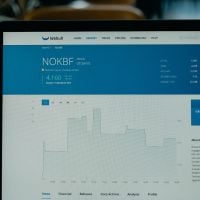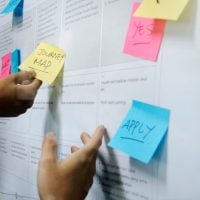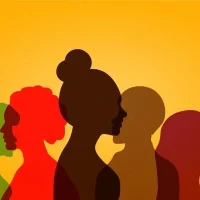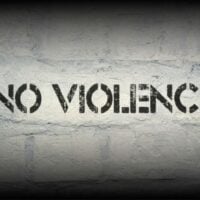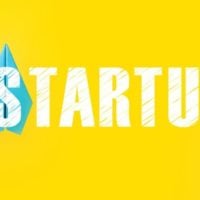Deadline: 7 May 2019
The European Union is pleased to invite proposals on “Civil Society Organizations (CSOs)” and “European Instrument for Democracy and Human Rights” in Benin.
The general aim of this call for proposals is to strengthen the role of civil society as actors in the governance, development and protection of human rights.
Objectives
- Lot 1 (Youth Employment): Strengthen the economic integration of young people through support for their integration into the labor market, vocational training and entrepreneurship in two priority areas: agricultural development and the sustainable exploitation of natural resources as well as promotion of the Beninese culture through the valorization of its heritage, the support to the craft techniques and the artistic activities in the optics in particular to promote Benin like tourist destination. It aims to strengthen the professional integration of young people in its many dimensions (orientation, training, individual support, support and support for the installation and management of their business, etc.) in partnership with local actors (local authorities local, deconcentrated state services, formal and informal private sector, community and / or family actors etc.) and in line with local economic opportunities, as foreseen in SDGs 4.3; 4.4; 8.3. and 8.6. Support for social entrepreneurship is also encouraged.
- Lot 2 (Sexual and reproductive rights of women and girls): Strengthen the sexual and reproductive rights of women and girls in Benin as fundamental rights for the development of women and girls throughout their lives. Sexual rights are about sexuality, they give everyone the right to freely decide on their body and sexuality, regardless of sex, gender, sexual orientation, ethnic or geographical origin, or his handicap. Reproductive rights are related to fertility. They concern both the health of reproduction and that of non-reproduction. These rights allow everyone to freely decide when to reproduce, the desired number of children, or the spacing between births. Sexual and reproductive rights are taken into account in the context of the Sustainable Development Goals (see SDGs 3.1, 3.3, 3.7, 5.3 and 5.6.). They cover the themes of forced and / or early marriages and early pregnancies, which are particularly evident in Benin.
- Lot 3 (Promotion and protection of the rights of children): Contribute to the development of the living conditions of children living in the most disadvantaged contexts of the country. The economic and sexual exploitation of children, as well as the persistence of harmful traditional practices such as early marriage, circumcision or ritual infanticide, are scourges against which the contribution of civil society remains crucial. The facilitation of access to justice, as well as the care of the victims of these crimes are also to be included among the specific objectives. Birth registration is an essential right enshrining the existence of a child and a condition for the provision of school and health services: any action aimed at improving the rate of birth registration, especially in more remote areas of the country, will be eligible under this call for proposals, which aims to contribute to the achievement of the Sustainable Development Goals 1.2. ; 1.3. ; 4.1. ; 10.3. and 16.2.
Priorities Area
For Lot 1 (Youth Employment):
- This call aims at supporting initiatives that are part of a process that combines the acquisition of skills, talents and professional integration of young people, taking into account their specific needs and local economic opportunities;
- These initiatives will be anchored in a logic of territorial development involving various types of local actors to ensure the sustainability of the supported actions (local authorities, formal and informal private sector, community and family actors, etc.).
- They should be based on a detailed analysis of the context, specifically highlighting the barriers to employment and business creation (for example: access to land, access to finance, etc.) and propose solutions to overcome them structured. They can also integrate a research-action dimension;
- Lastly, the actions will have to provide for original methods of participation of young people in the process, as full participants in their professional integration and not as mere beneficiaries of support.
- Actions should also take into account the following cross-cutting dimensions:
- the promotion of gender equality
- the protection of the environment
For lot 2 (Sexual and reproductive rights of women and girls):
- This call targets actions that are part of multi-stakeholder and multisectoral approaches;
- The actions carried out must have a strong institutional anchoring;
- Actions should provide for original methods of participation of young people and parents in training and awareness-raising activities, whether in schools or in other appropriate settings, so as not to leave teachers and educators as the only active players;
- Sensitization / training / discussion activities should use methodologies that are as top-down as possible in order to make the beneficiaries active (use of peers in the dissemination of information, use of young women and men as a model, sharing of experience , etc.).
For lot 3 (Promotion and protection of children’s rights):
- This call aims to support actions relating to the respect of the rights of children, from the rights relating to the civil status (actual delivery of birth certificates, availability of birth registers);
- Proposed actions should focus on an inclusive approach of all stakeholders (state actors, parent associations, etc.);
- The actions should contribute to a better knowledge of childhood conditions in Benin, by sharing data derived from the implementation of the proposed actions;
- The actions will have to present innovative approaches and methodologies with the potential to be replicated on a larger scale, including the use of new communication and information technologies, social media
- The entire extent of the national territory is eligible for the purposes of lot 3 of this call for proposals. Actions targeting specific areas of intervention must present the reasons for the proposed choice;
- Preference will be given to actions;
- which are presented by local organizations as the lead applicant for the purpose of promoting local ownership and decision-making;
- who apply a rights-based approach (AFD) and the promotion of gender equality and equity.
Funding Information
- Lot 1 – Youth employment: EUR 1 000 000
- Lot 2 – Sexual and reproductive rights of women and girls: 689 000EUR
- Lot 3 – Promotion and protection of the rights of children: EUR 660 500
Eligibility Criteria
NB: Please note that for each lot the criteria are different
Lead Applicant
- LOTS 1 and 2:
- To be eligible for a grant, the lead applicant must:
- be a legal person and
- be non-profit and
- be a Civil Society Organization (CSO) constituted in accordance with the legislation in force in the country concerned and
- be established in the Republic of Benin or in a Member State of the European Union or the European Economic Area (EEA)
- For British applicants: Please note that the eligibility criteria must be respected throughout the duration of the grant. Unless otherwise specified in the sectoral eligibility rules12, if the United Kingdom withdraws from the European Union during the grant period in the absence of an agreement with the EU, in particular to ensure that United Kingdom applicants continue to be eligible, you will no longer receive funding from the EU (while continuing, if possible, to participate) or you will be required to leave the project on the basis of Article [insert reference to the article of the contract grant allowing the termination of the said contract (modification of the beneficiary’s legal position)]
- be directly responsible for the preparation and management of the action with the co-applicant (s) and the entity or affiliated entities, and not acting as an intermediary
- prove that he has regularly carried out for more than 2 years activities in the lot area for which the proposal was submitted;
- To be eligible for a grant, the lead applicant must:
- LOT 3
- To be eligible for a grant under lot 3, the principal applicant must:
- be a legal person and
- be non-profit and
- be a CSO (civil society organization) or be part of a network of CSOs and
- be directly responsible for the preparation and management of the action with the co-applicant (s) and the affiliated entity (ies) and not act as an intermediary.
- To be eligible for a grant under lot 3, the principal applicant must:
For the three lots:
- The lead applicant must act with one or more co-applicants in accordance with the following requirements. For applicants established in a Member State of the European Union, they must act with one or more co-applicants (s) Benin.
- International organizations that have their source in international agreements, specialized agencies created by such organizations and other organizations assimilated as international organizations (eg International Committee of the Red Cross and the International Federation of National Red Cross and Red Crescent Societies ) are not eligible under this call for proposals. United Nations agencies are not eligible under this call for proposals.
Co-Applicant (s)
- The co-applicants participate in the preparation and implementation of the action, and the costs they incur are eligible in the same way as those borne by the lead applicant.
- Co-applicants must meet the same eligibility criteria as those applying to the lead applicant itself.
Affiliated Entities
- The lead applicant and his co-applicant (s) may act with one or more affiliated entities.
- Only the following entities may be considered affiliated to the lead applicant and / or the co-applicant (s):
- Only entities that have a structural link with the applicants (the lead applicant or a co-applicant), in particular a legal or capital link.
- This structural link mainly encompasses two notions:
- Control, as defined in Directive 2013/34/EU on the annual financial statements, consolidated financial statements and related reports of certain types of undertakings:
- Entities affiliated to an applicant may hence be:
- Entities directly or indirectly controlled by the applicant (daughter companies or first-tier subsidiaries). They may also be entities controlled by an entity controlled by the applicant (granddaughter companies or second-tier subsidiaries) and the same applies to further tiers of control;
- Entities directly or indirectly controlling the applicant (parent companies). Likewise, they may be entities controlling an entity controlling the applicant;
- Entities under the same direct or indirect control as the applicant (sister companies).
- Membership, i.e. the applicant is legally defined as a e.g. network, federation, association in which the proposed affiliated entities also participate or the applicant participates in the same entity (e.g. network, federation, association) as the proposed affiliated entities.
How to Apply
- The application procedure consists of two phases:
- Concept notes
- Full applications
- The concept note together with the declaration by the lead applicant must be submitted at the address given on the website.
For more information, please visit https://bit.ly/2HKISNd and download the guidelines.





